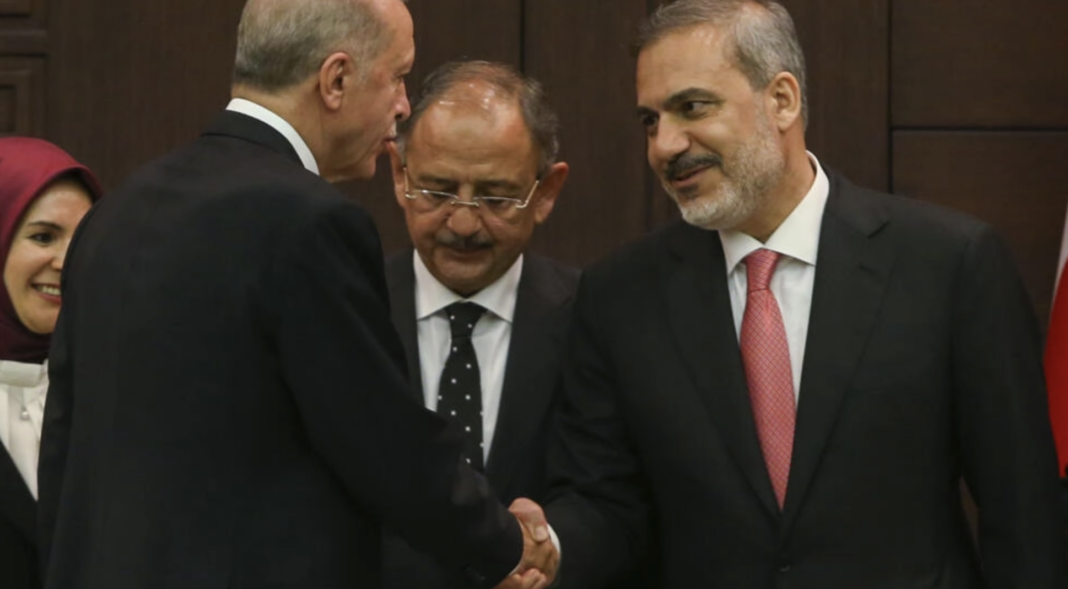Turkish Foreign Minister Hakan Fidan’s visit to China earlier this month is the latest diplomatic effort by Ankara to become a strategic trade hub between Europe and China. But Beijing’s suspicions over Ankara’s support of Chinese Uyghur dissidents is widely seen as an obstacle.
Bilateral trade and developing new trade routes were at the top of Turkish Foreign Minister Hakan Fidan’s agenda for his recent China visit.
According to Cagdas Ungor, an expert on China and professor of political science at Istanbul’s Marmara University, Turkey wants to be a part of the shift in global trading towards the Asia Pacific region.
« Turkey needs to rebuild all these connections in order to remain at the center of things, maintaining its bridge status between East and West, » he explained to RFI.
Ankara is seeking backing from Beijing of its « Middle Corridor » trade route, which would link China with Europe via Turkey.
Until now, such efforts have made little progress, but Ungor says this could change due to the world economy resetting to circumvent sanction-hit Russia.
Middle Corridor has been on the table between China and Turkey for a long time, Ungor says.
Window of opportunity
« The idea of it has become more popular now because of the Russian sanctions, and Europeans are now also interested in alternative channels. There’s a window of opportunity, » he says.
But Beijing is critical of Ankara offering refuge to China’s predominantly Muslim Uyghur minority.
The Chinese have not forgotten that in 2009, when Turkish President Recep Tayyip Erdogan was Prime Minister, he described China’s crackdown on Uyghurs as « near genocide ».
The international community, including the United States and the European Union, have also accused China of incarcerating tens of thousands of its largest Muslim minority in camps in an effort to strip them of their Muslim identity. Beijing has denied these accusations, saying the camps are designed to combat separatism and weed out Islamist extremists.
Since then, the issue seems to have become water under the bridge, judging by the warm reception Turkey’s diplomat was given on his China visit at the beginning of June.
Analysts say Fidan used more conciliatory language on the issue during his trip which included a stop in Xinjiang, home to many Uyghurs.
Respect for one-China policy
Ungor says the the Chinese were « happy » with Fidan’s visit, as it further underlined Turkey’s support for China’s one-China policy.
« The official Chinese media focused on the fact that Turkey respects China’s territorial integrity, » Ungor says.
« And Fidan’s remarks on Xinjiang’s economic development, social harmony, respect for cultural rights » made a good impression, adds Ungor.
Turkey’s pro-government media even praised Fidan for wearing a turquoise blue tie, the color of the Uyghur community and referring to the region’s Turkic Muslim roots.
However, some members of the Uyghur diaspora were alarmed by Fidan’s visit.
Uyghur leader Seyit Tumturk, the head of East Turkistan National Assembly accused the Chinese administration of « trying to legitimise its own genocide » by with Fidan’s visit to the Uyghur region.
Tumturk maintains that « Hakan Fidan saw what China wanted him to see, but no more, » suggesting that if China had nothing to hide, then it should allow international independent observers to have the opportunity to go there « and visit not only places China says to see but also the back streets, to visit the households, and to determine the agony, pain, and torture there, » he concludes.
Wildcard
Adding to Uyghur dissidents’ unease over Fidan’s China visit are growing rumors that Ankara is ready to acquiesce to Beijing’s lobbying to ratify an extradition agreement held up in the Turkish parliament in the face of strong opposition.
« The ultranationalist opposition claims that China got a promise from Fidan that the Turkish parliament will finally ratify an extradition treaty, which will allow Uyghurs to be sent back to China, » explains China specialist Ceren Ergenc, a visiting fellow at the Centre for European Policy Studies.
« There’s no way that we can know if it’s true or not, we need to wait and see. If it’s correct, then it’s a huge compromise from Turkey’s side, » adds Ergenc.
Such a compromise could help overcome Beijing’s current reluctance to collaborate with Ankara. But any move by Ankara against the Uyghurs will be risky given the strong Turkish public support for the Chinese minority.
« China informally bypasses Turkey in its regional plans. Turkey is a wild card for China, » claims Ergenc, adding that Turkey is also officially classified as a high-risk country for investment for Chinese companies.
« The Uyghur diaspora is very strong in Turkey in terms of the voter base of the conservative parties. So you never know how a statement like Erdogan’s ten years ago could come and create a crisis between the two countries.
By:Dorian Jones

